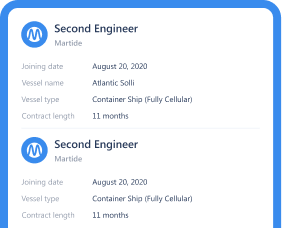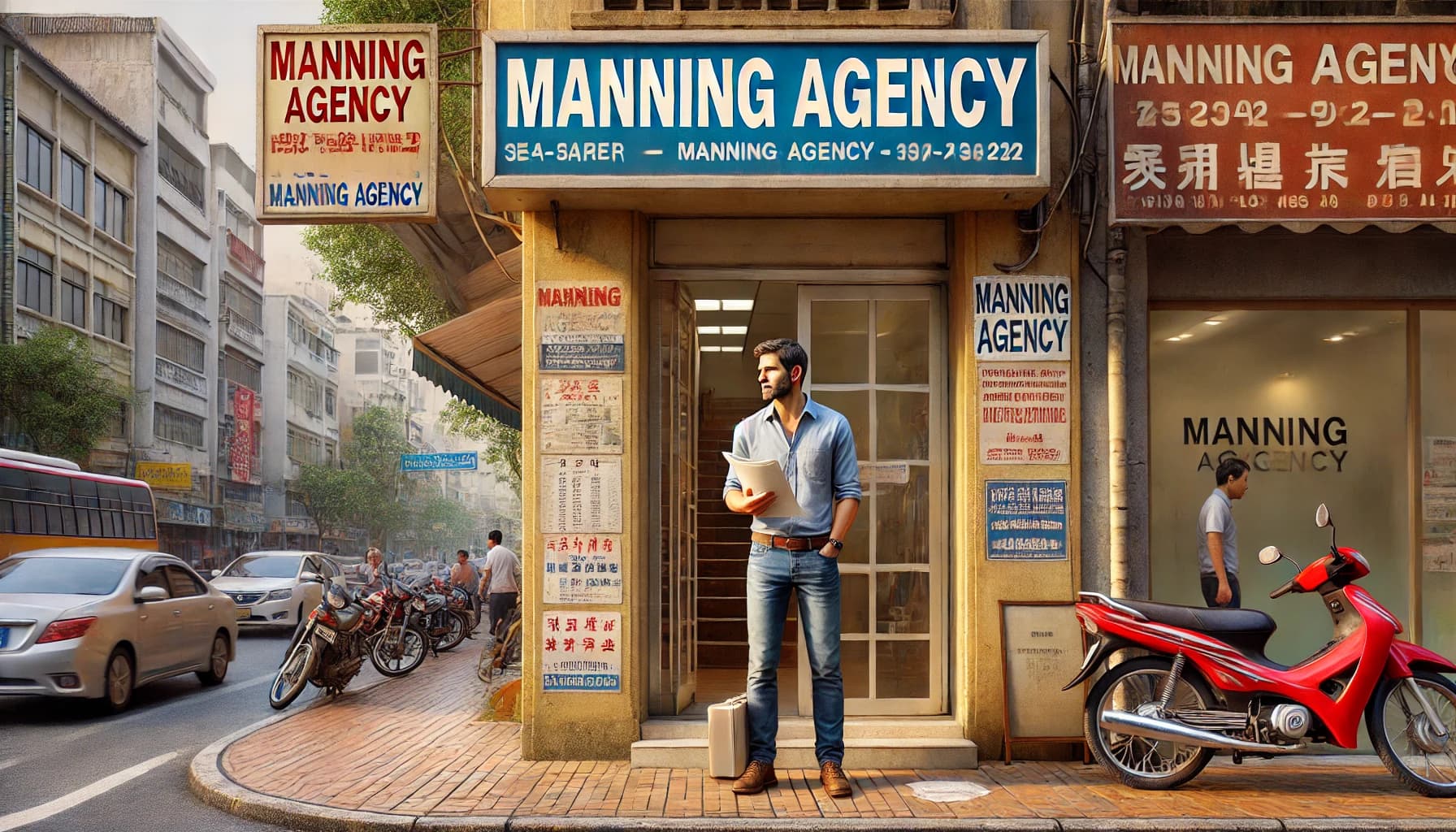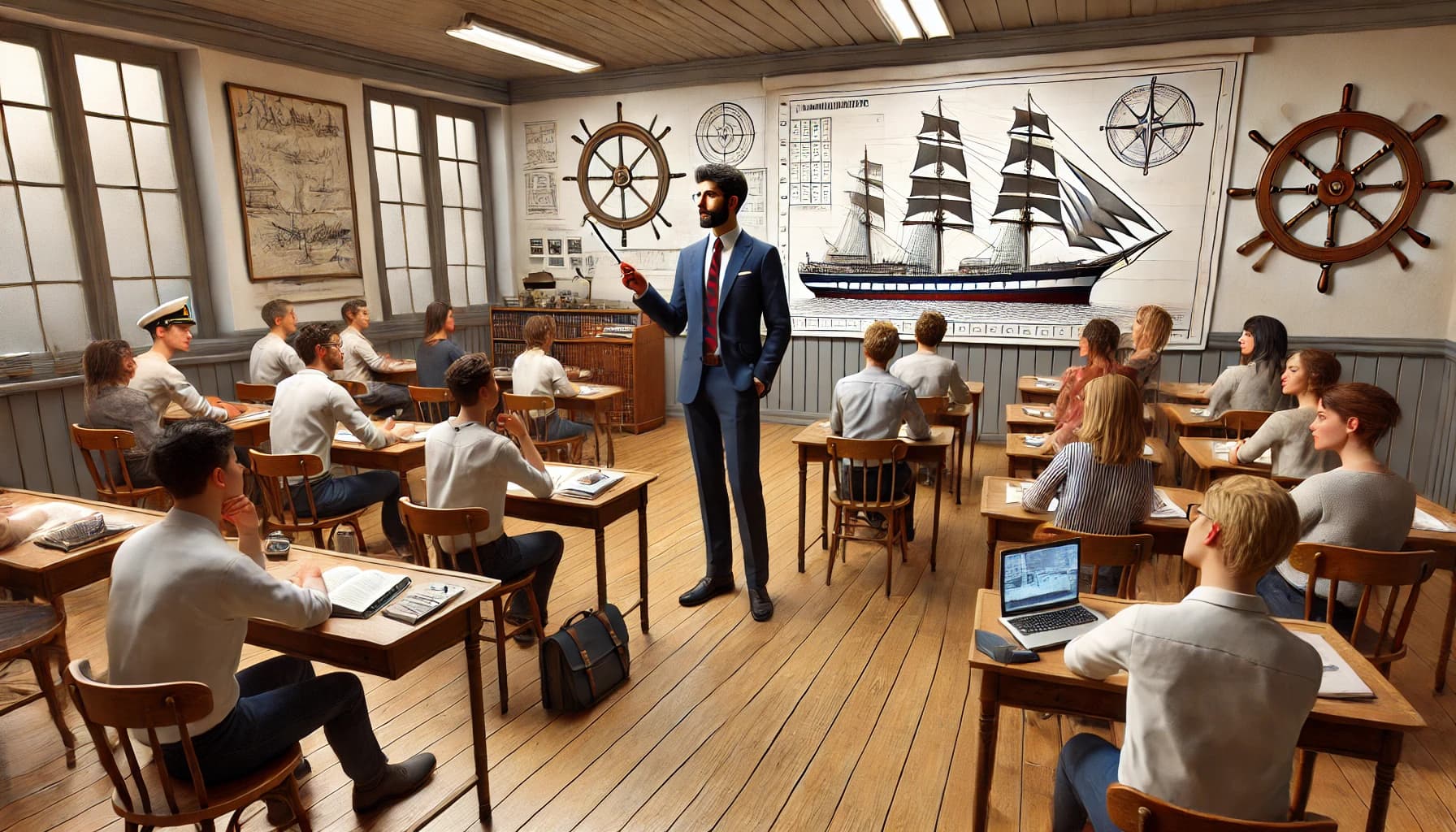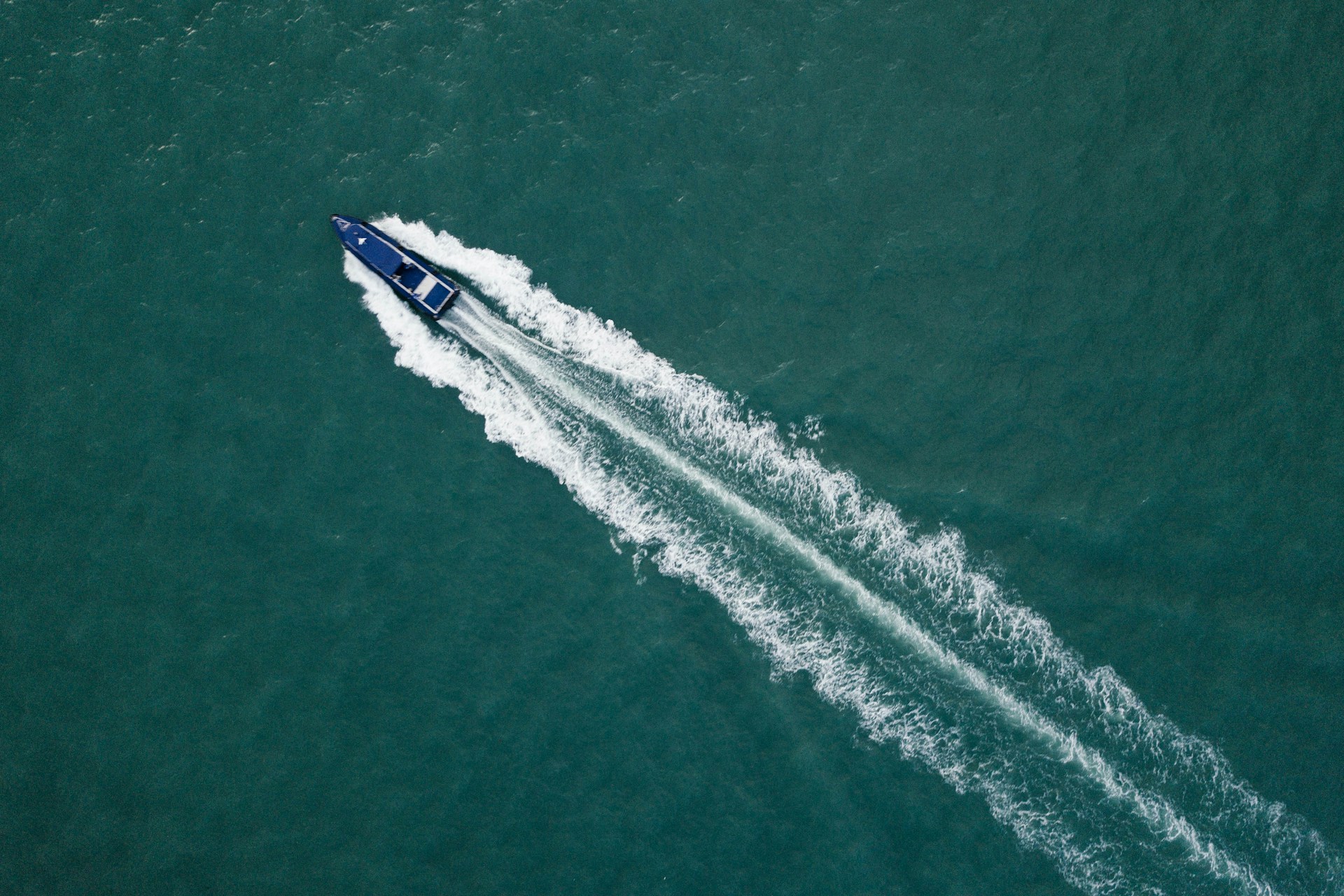What You Should & Shouldn't Include on Your Seafarer Resume
May 11, 2020 · 15 mins read ·
Job Seeker Tips
If you’re looking for entry level cargo ship jobs chances are you’re about to sit down and write your seafarer resume.
Or maybe entry level maritime jobs are in your dim and distant past but you’re thinking about updating your resume for a seaman to start applying for different jobs at sea.
Whatever the reason, writing a great seaman resume that helps you stand out from the crowd is important if you want an employer or maritime recruitment agency to contact you instead of another similarly qualified officer or rating hunting for the same seafarer jobs as you.
In this blog post we’re going to take a look at what you should AND shouldn't include in your resume for a seafarer.
Read more: How A.I. Can Help You Write Your Seafarer Resume
If you follow our advice we think you should be well on your way to having a maritime resume that helps you land the best jobs at sea!
First of all let's take a look at the information that you SHOULD include on your CV for a seaman.
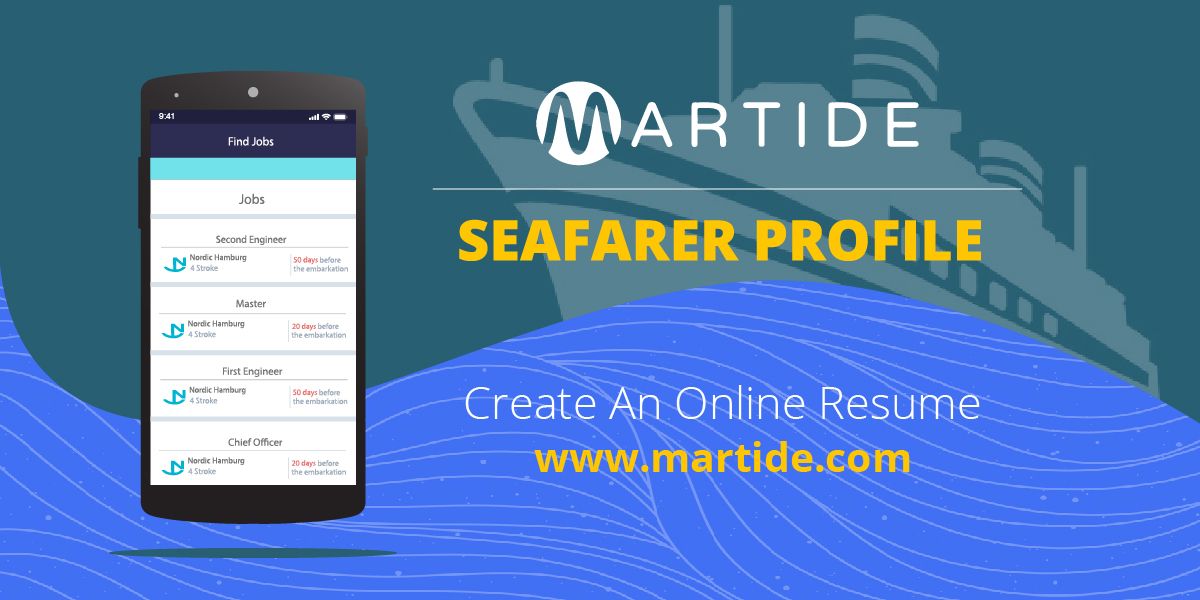
What you must include on your seafarer resume
Does your seaman resume include all of the following?
Your contact details
First things first. You really need to make sure anyone who is interested in hiring you for one of their seafarer jobs knows how to get in touch with you!
That means you need to include your name, telephone number(s), Skype or Zoom ID, address, and email address. And - top tip - make sure your email address is professional.
Your personal statement
Next you need to make sure you include a personal statement at the top of your seaman resume. This doesn’t need to be half a page of text, in fact, employers and maritime recruitment agencies will prefer it if it’s short and sweet and easy to read.
We suggest you keep your personal statement to a maximum of 3 sentences.
A personal statement on a resume for a seafarer is basically a short introduction to you. It’s the hook to get the crew manager or manning agent interested in you and is your opportunity to make them decide whether or not to keep reading.
Include your current situation - whether you are working right now or are ashore and available, what you are looking for, your seafarer rank and the level you are certified to.
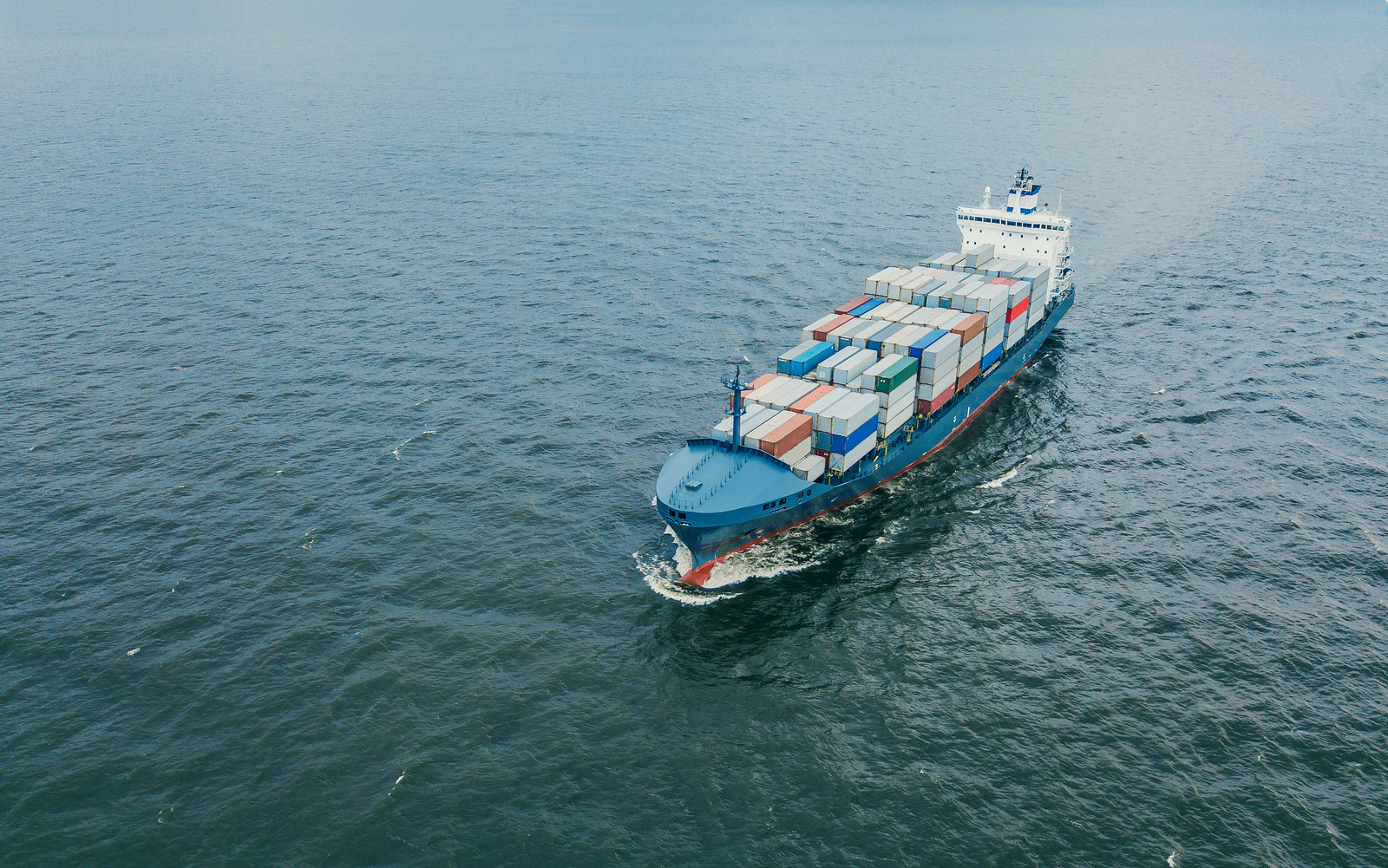
As the name suggests, try to make this personal to you. Saying you’re a Marine Chief Engineer who is looking for Marine Chief Engineer jobs isn’t really going to set you apart from the competition.
Instead, say what your overall goal is in your career and mention your accomplishments (without bragging or coming across as a bighead.)
For example: “I am an experienced chief cook with a proven track record in creating healthy and nutritious food for my crew.”
Your skills and achievements
After the personal statement, your seafarer resume should then include another short section that highlights any skills you have. This is how to quickly and easily show an employer whether you’re suitable for the vacancy.
To make this part easy to read, you can use bullet points.
Top tip: remember to keep your skills factual. It can be tempting to exaggerate the truth, especially if you’re applying for entry level cargo ship jobs and you don’t have much experience or sea time yet, but this will only cause problems further down the line.
Read more: Why Lying on Your Seafarer Resume will Always Backfire
Your work and education history
Generally speaking on any type of resume, including a resume for a seaman, you would list your work experience before your education.
However if you’ve only just graduated and don’t have much sea time yet, you might want to switch this around and make your qualifications, diploma or degree the main focus.

Don’t worry - if you’re searching for entry level cargo ship jobs, the person doing the hiring will not expect you to have a long list of maritime jobs and experience on your seaman resume just yet.
When it comes to listing your jobs at sea, lay each job out in the following format:
- Your job title / seafarer rank
- The employer / shipping company
- The name and type of the vessel
- The dates of your employment or contract
- Your main responsibilities
You should also include your qualifications and other documents you hold on your seaman resume such as your STCW certificates, medical checks, fire fighting qualification, Endorsement of CoC and so on.
Once you’ve listed all your jobs at sea (start with your current or most recent job first and then count backwards to the oldest) you can add in any hobbies you might have.
Your hobbies and interests
There’s no need to go into detail but a short list of any sports, particular interests, pastimes, languages you speak or are learning, or volunteering you do will help to make your seafarer resume a little more personal and make you more memorable.
Your references
Finally, when writing a resume for seafarer jobs, you should also include two references who can be contacted by a potential employer if they want to know anything else about you and confirm that your experience is as you say it is.

A reference should be someone you have worked for before and could be the Human Resources department of a company, or someone who you worked with and who was your superior in seafarer ranks.
If you’ve just graduated and haven’t worked in a seafarer job before, you can list someone who is connected to your education.
Obviously it goes without saying that a referee should be someone you have a good, or at least polite and professional working relationship with.
Now let's take a look at the other side of the same coin and find out what you SHOULDN'T include on your seafarer CV.
What you shouldn't include on your seafarer resume
There are things that you know you should do when writing a seafarer resume: checking and double checking (and, yes, triple checking) for spelling mistakes is probably the biggest one.
Making sure your dates all line up and make sense is another important factor too. If your dates of contracts are all out of sync it will not only look a little strange, but will make you look sloppy or careless in the eyes of the maritime recruitment agency or employer too.
And nobody wants a sloppy seafarer onboard one of their vessels!

The thing is, it can be easy to make mistakes when writing a resume for a seafarer. Nobody’s perfect and we always suggest getting at least one other trusted person to look over what you’ve written before you send it to any maritime recruitment agencies or shipowners.
So, here's a list of things you will most likely want to leave off your resume.
Your salary or salary expectations
Information about your current or last salary and the salary you want or expect to receive for the job you’re applying to.
This is an easy mistake to make and many people do include their salary information such as their previous salaries and their expected salary for the new position. We know that everyone expects (and has a right) to be paid fairly for the jobs at sea that they do.
But by including this in your seafarer resume it unfortunately comes across as looking like you’re only interested in the money.
And hey, maybe you are. But that’s not what a recruiter or employer wants to hear and it’s not going to win you any points!
Whether you’re applying directly to a crew manager, or through a manning agent or maritime recruitment agency, they will be well aware that you expect to be paid.
Leave the salary info off your maritime resume and wait until you’re actually offered an interview to talk about it.

Your reasons for leaving your last employer
Leave out the reason why you don’t want to work with your previous employer any longer.
The reason for this is, if you’re airing grievances in your resume for a seaman this isn’t going to go down well. Don’t fall into the trap of thinking a new employer will be pleased that you’re complaining about one of their competitors. They won’t be - they’ll just think you’re unprofessional instead.
It might also look like you’re a difficult employee, and like salary, this can be discussed if and when you progress to the next stage of the application process.
Too much information
If you've spent years working in various seafarer jobs, you may have pages and pages of endless information about every single rank you’ve held, contract you’ve had, and vessel you’ve worked on.
But including waaaay too much information is a real no no. Maritime recruitment agencies, manning agents and crew managers are busy and they are not going to sit down and spend half an hour reading your seafarer resume if it’s more like a short book!
It doesn’t matter how impressive or awe-inspiring your work history is, if your seaman resume runs to more than a page or two, they’re going to relegate you to the ‘no pile’. Or delete your email.

The fact is, studies have shown that the majority of recruiters will discard your CV if it doesn’t pass the 30 second speed reading test.
And that’s being generous - some estimates put it as hiring managers only looking at a resume for 6-7 seconds before deciding whether or not to read further. That doesn’t give you a lot of time to impress someone so jump right in with that winning personal statement form the get-go!
But what can you do if you’ve spent lots of time working in jobs at sea and are keen to show you’re the right seafarer for the vacancy? The trick is to just include the most important and/or most recent and relevant contracts you’ve had.
For example, if you’re a Chief Engineer with two decades of work experience under your belt, no one needs to hear about the first job you had when you were straight out of maritime academy. Harsh but true!
An unprofessional email address
Okay, okay, this might sound a little bit petty, but trust us, these things count. It’s not going to impress anyone - maritime recruitment agency or crew manager - if on your seafarer resume you tell them they can get in touch with you at captainawesome@email.com or dungeonsanddragons16@inbox.com.
By all means, keep that email you’ve had since you were at college to communicate with friends and family but set up another email account using your name or perhaps your rank as the address to use for your professional communications.

It might not be 'fun' but patel-fitter@email.com or engineer_garcia@inbox.com will look much better than rockstarsantos@email.com
How Martide can help you find jobs at sea
Whether you’re looking for entry level cargo ships jobs or Marine Chief Engineer jobs, Martide can help you line up your next contract. Best of all we take the hassle out of writing a resume for a seaman!
There’ll be no more worrying if you’ve made any terrible mistakes on your seafarer resume, or whether an employer or maritime recruitment agency is rolling their eyes because you’ve included so many clichés.
Instead you’ll be just a few easy steps away from your next seafarer job!
That’s because when you create an account with Martide, you’ll enter all of your personal details, work experience and educational information into your seafarer profile. It’s like having an online resume for a seaman without all the stress of actually knowing how to write a seafarer resume.
You can also upload all of your documents, diplomas and certificates, as well as photocopies of things like your seaman book, passport and visas. That way they’ll all be safely stored in our system and all in one place.
Then, when you see a seafarer job you like the look of, all you have to do is click the apply button and your details will be sent to the employer.
There’s no need to email out endless copies of your maritime resume and no need to create your seafarer profile over and over. Once your details are in the system you can apply for as many jobs as you like in just a couple of clicks.
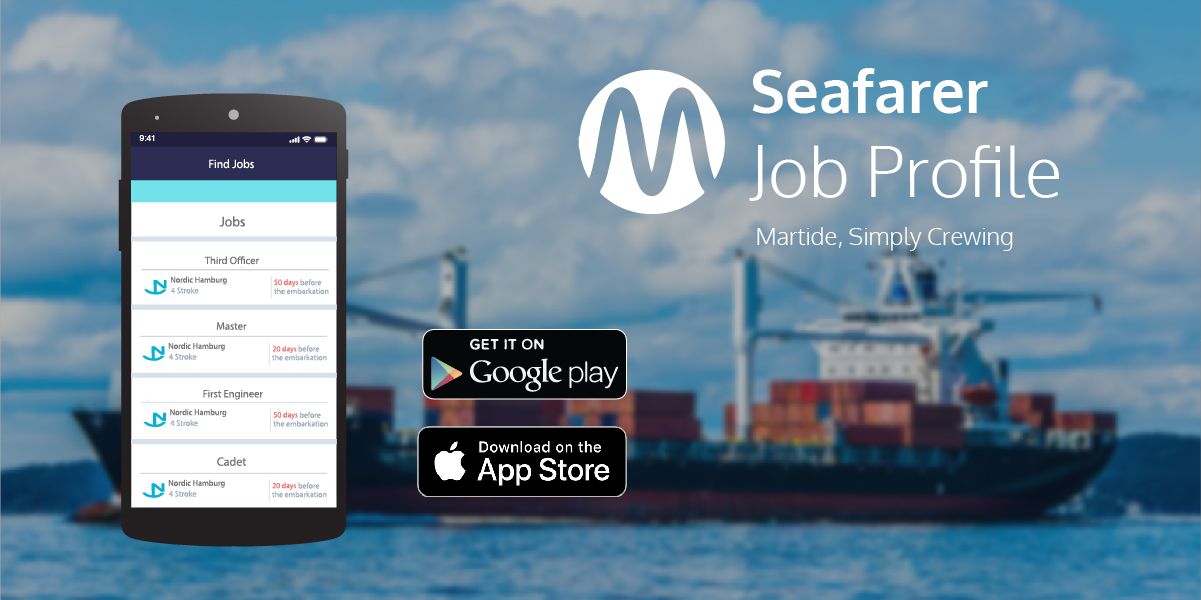
Plus if you want to make life even easier for yourself, we recommend downloading the Martide mobile app for seafarers.
It’s like having your seaman resume on your phone and in your pocket! You can use the app to search for all of our jobs at sea, apply to vacancies, and also stay in touch with employers.
The app is completely free and you can download it from the App Store or Google Play. What are you waiting for? Download it now and we hope to see you onboard soon!
This blog post was originally published on May 11th 2020 and updated on September 12th 2023

Eve Church
Eve is Martide's content writer, publishing regular posts on everything from our maritime recruitment and crew planning software to life at sea. Eve has been writing professionally for more than two decades, crafting everything from SEO-focused blog posts and website landing pages to magazine articles and corporate whitepapers.
UK
